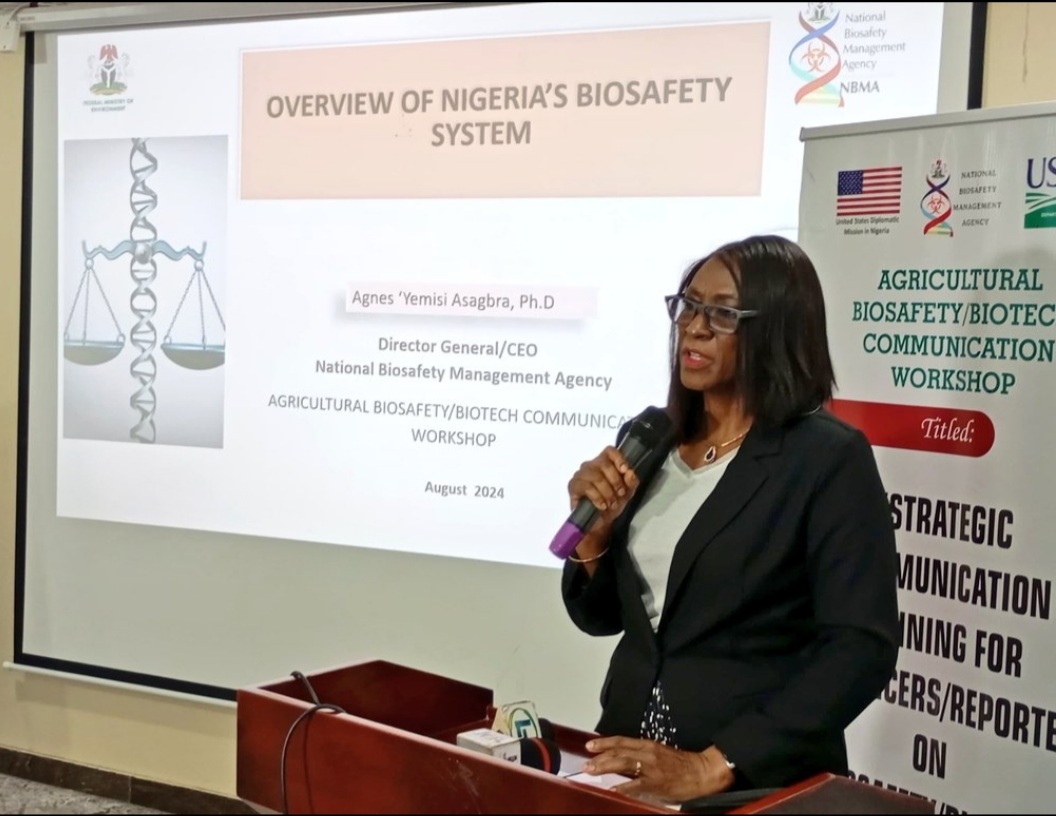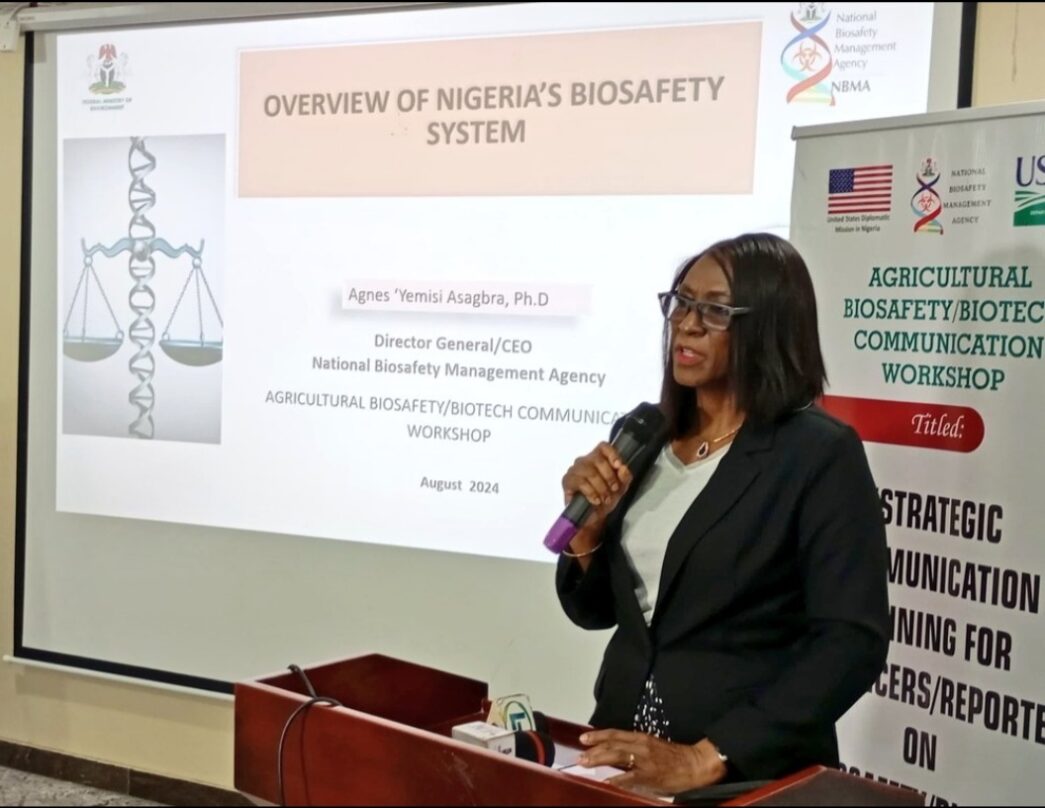The National Biosafety Management Agency says agricultural biotechnology is crucial in enhancing food security.
Speaking at a biosafety/biotech communication workshop held on Wednesday in Lagos, Yemisi Asagbra, NBMA DG, said there is a need to inform the public about agricultural biosafety and biotechnology advancement and its advantages.
“All our information is science-based. We do not cut corners but work with Nigeria because we know that the Nigerian populace needs to be safe,” Asagbra said.
She added that the workshop aimed at enhancing the media’s capacity to accurately communicate complex biosafety topics to the public and dispel disinformation about genetically modified crops.
Advertisement
Speaking on balancing facts, myths, and truths, African Farmer Mogaji, a researcher, said there is a need to inform and deconstruct the negative narratives around biosafety and its regulations in Nigeria.
“This is long overdue; providing the public with the right information about development in the food value chain and the future of food across the country,” Mogaji said.
He noted that it is important to let the public know that the agency is there to protect Nigerians from present and future food security challenges.
Advertisement
“GMO is something that Nigerians must pay attention to when you consider climate change, banditry, reduction in the size of farms that farmers have access to, and when you also look at flooding,” he said.
“We need to begin to look at it from the perspective of food security, food safety in the sense that many of these things will begin to come to the borders of Nigeria, so if Nigeria is not up to date with happenings globally, we may find ourselves at the receiving end.
“We must pay attention to biosafety, biotechnology, and GMOs. I think anything biotechnology, we should talk about it from the standpoint of science and proofs and facts.
“We should see research done in Nigeria showing us a direct challenge from GMOs. We have been focused on what is said in Europe and other countries. We need to take that responsibility and push the right narrative. We cannot avoid this global development.”
Advertisement
On her part, Hauwa Ahmed, acting director of biosafety enforcement and operations, reassured Nigerians that the agency is unbiased and always prioritises the safety of Nigerians.
“We want to assure Nigerians that we are an unbiased empire. All the information and decisions taken are based on scientific findings,” Ahmed said.
“What I want us to remember is that we all buy from the same markets, the NBMA will not approve anything that is not safe for the public. We want to assure the public that any product the NBMA says is safe is safe.”
She added that all seeds and grains applications submitted to the NBMA go through a thorough review by scientists and experts.
Advertisement
‘GMOS ARE NOT DEVELOPED WITH CHEMICALS’
Also speaking, Abraham Isah, programme officer for Open Forum on Agricultural Biotechnology in Africa (OFAB), said there are a lot of untruths about genetically modified crops and
Advertisement
“The pictures we see online showing crops being injected are all fallacies. Chemicals are not used to develop GMOs,” he said.
“I will encourage the public to always do diligent research about GMOs before concluding on the safety of GM crops. Much of what is spread about GM crops are normally fallacies, like saying they are not safe, they are carcinogenic, cause infertility, not good for planting, etc, all these are fake information.
Advertisement
“They are aimed at causing fear in the public and ensuring people do not support or adopt GM crops.
“We are not saying GM crop is the all-in-one solution to feed the teeming population but we’re saying to feed this rapidly growing population, you need different techniques to match up with the demands. GM is one of those techniques.
Advertisement
“With GM technology, you will be able to generate plants that can defy climate change which is one reason we should adopt GM crops. We must adopt technology that will help build crops and animals with special traits.”
Add a comment










